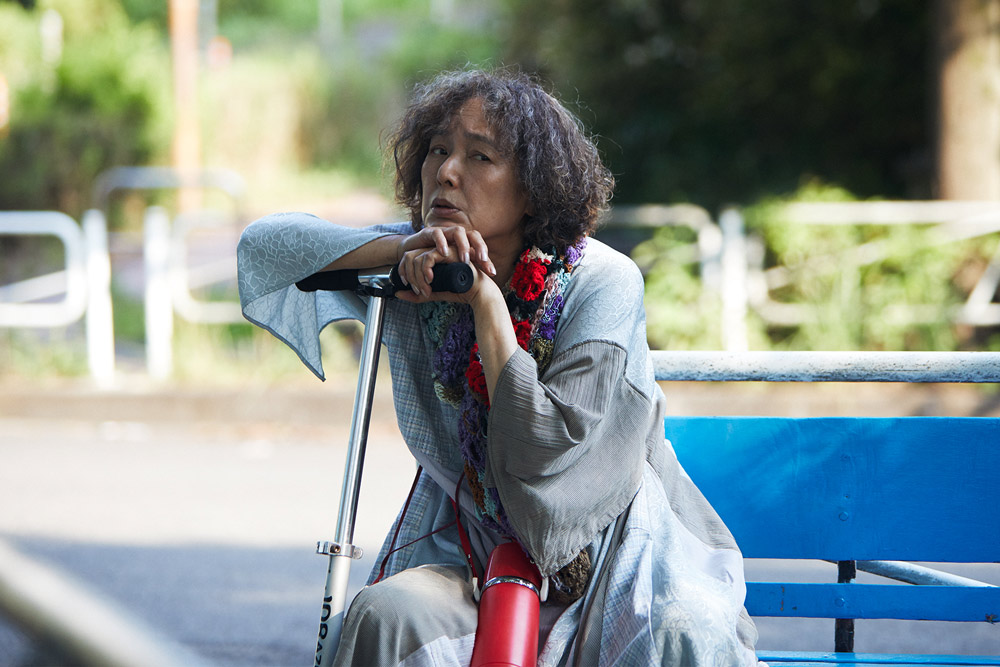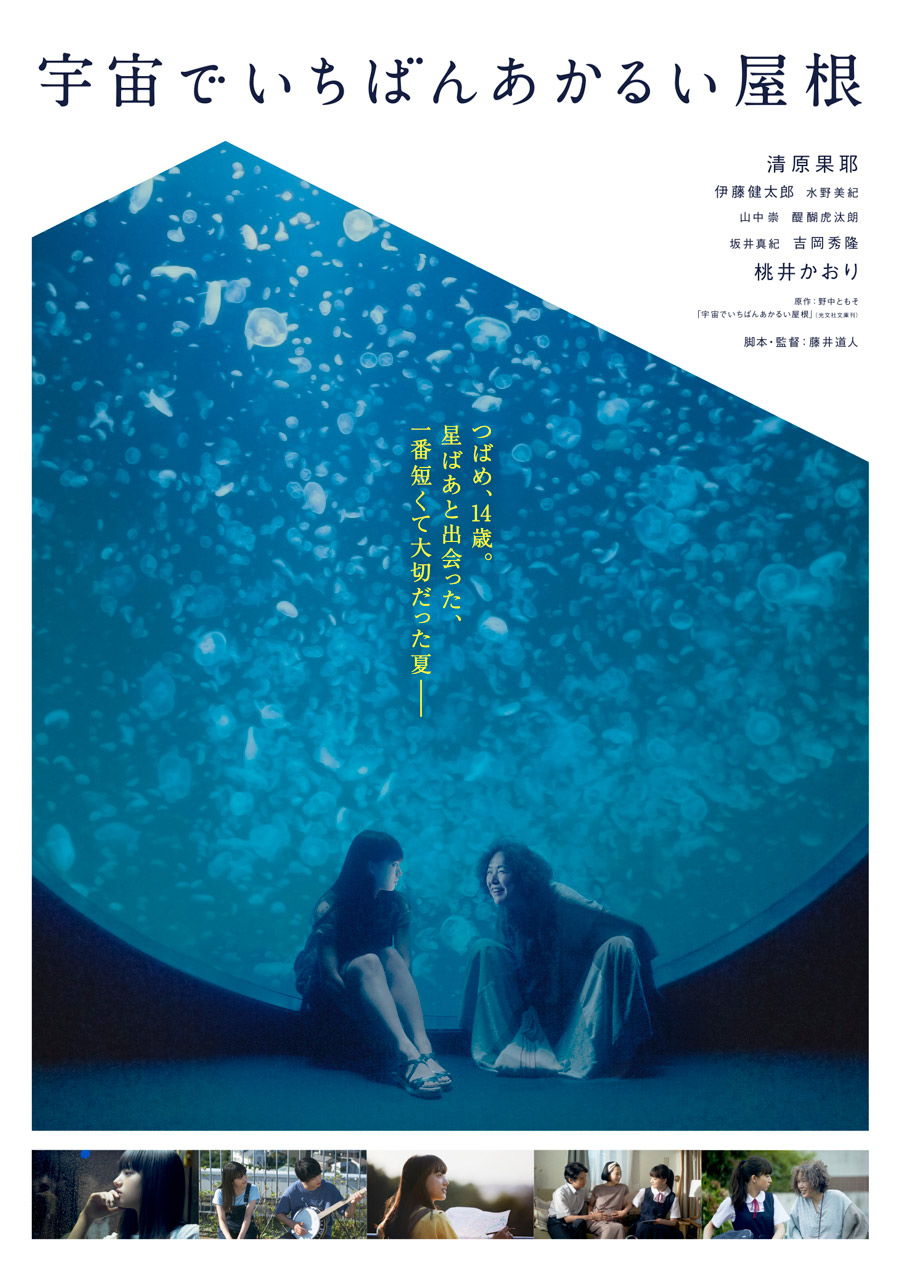![[CINEMORE ACADEMY Vol.3] Pre-production edition How to make the movie “The Brightest Roof in the Universe”](https://cinemore.jp/images/ec05ad1d98dd55aec9310f03563a78741035f515393693eb6d4c7bd65d99efd2.jpg)
[CINEMORE ACADEMY Vol.3] Pre-production edition How to make the movie “The Brightest Roof in the Universe”
Handing over the script itself is a presentation to the actors.
Q: I heard about the audition, but could you also tell me about the offer? For example, what do you think about the question that is often asked, ``Will a big-name actor be able to appear even on a low budget?''
Fujii: To be honest, if the project and script reach the actors, there is a lot of possibility. This is because the management looks at the project before the actors. At that time, I think it's common for people to not show the film to the actors in the first place if they feel negative about things like ``no distribution company has been decided upon'' or ``the director is young and has no experience at all.''
There are a lot of people who will come on board if the script is interesting, and Hiroshi Tate, who worked on `` Yakuza and the Family '', said ``It's interesting and I want to do it,'' and things immediately turned around. Kaori Momoi, who wrote ``The Brightest Roof in the Universe,'' was selected based on the script, even though she lives in Los Angeles.
Q: I see, the first barrier to casting is the manager. The script is passed on to management through the casting director or producer, and if things go well, it leads to that.
Fujii: A good manager also has a great sense of aesthetics. I work for an agency myself, and I trust the manager's advice and opinions, which are very accurate. The most important thing is for the manager to say, ``This script is interesting. I want to let you do it.''
Q: I would like to ask Mr. Maeda, is there a separate presentation when you send the script?
Maeda: Simply handing over the script may itself be a presentation.
This time, I complained to Mr. Fujii that the budget would be a little tight to realize this all-star cast, but he didn't take a step back and said, "It's all about casting," so I decided to write the script anyway. I think that's the only option.
It's up to the producers to decide how much effort they can make in a situation where they can't offer a generous performance fee, but at the same time, it's up to them to see how much the script will resonate with them. I also felt that. Hidetaka Yoshioka accepted the role simply because he wanted to play Tsubame's father, and Momoi readily agreed, saying, ``I've been waiting for a role like this.''

Mr. Momoi said, ``I feel that I am getting older, and I wanted to try a role like this.'' Before I contacted him, Mr. Momoi's older brother The fact that Mr. Momoi told me about the `` The Journalist '' (19) and said, ``This is interesting,'' gave me momentum.
Q: In your case, Mr. Fujii, you also write the script yourself, so if the script is good, the actors will probably think, ``I bet the director's direction is also great.'' You mentioned earlier that you "included crying," but are there quite often high hurdles for casting requests from directors?
Maeda: There are so many. This time, I said, ``We already have Kentaro Ito,'' but no, I'm not convinced that Hidetaka Yoshioka or Maki Sakai are better.
However, my soul as a movie fan was ignited when I said, ``Yes, I want to see it.'' I thought I had no choice but to try my best this time, and the person at the office scolded me and said, ``You're kidding me.'' I won, even though I was prepared to be turned away.
Q: Mr. Fujii, did you have any expectations that ``since you are Mr. Maeda, he would do it?''
Fujii: That's true. However , the one thing I always stick to is the idea that ``you can't make as many movies as you want in your life, and it's not something you can make without compromising.''
Even if it's not my intention, unlike people in the ``wait for work to come'' genre, we won't be able to do it if this movie doesn't work. There's no next time. That's why I want to share my motivation to see how far I'll go to die with you.
Q: It's a commitment that comes from determination.
Fujii: What impressed me about ``The Brightest Roof in the Universe'' was the casting, but also because I wanted to go to Yamagata to go to the aquarium that appears in the movie. Once that picture pops into my head, I don't want to get out of the car anymore, even if I'm taken somewhere else to scout locations. I looked it up on Google and already knew it wasn't here.

A poster visual featuring an aquarium that Director Fujii was particular about.
But this time, the line producer, Mr. Mori, was amazing and gave me a choice, saying, ``Okay, if you make the set one size smaller, you can do this.Which one would you choose?'' ``Then, I'll make it smaller,'' replied Kyoko Betani, the artist, looking sideways at the model with her arm resting on it (bitter smile).
But Mr. Betani, even though he said things like, "Yeah," he still prioritized my feelings. Both Mori-san and Hiroko-san were producers who allowed us to do things that were "thorough and without compromise."

